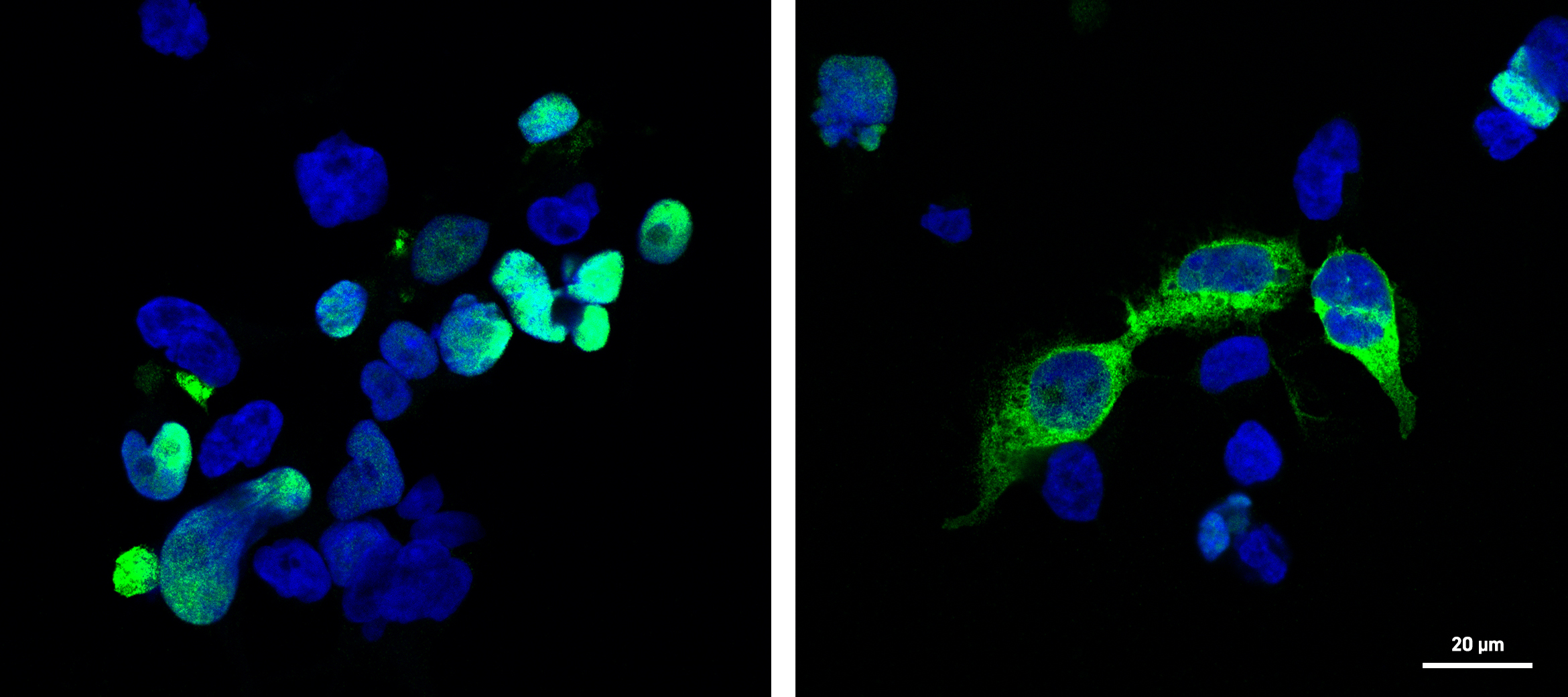Bowel cancer, also known as colon cancer, is the fourth most diagnosed cancer in Australia. It’s estimated that one in 20 people will be diagnosed with bowel cancer by the age of 85. It claims more than 100 lives in Australia each week, yet around 90 per cent of cases can be successfully treated if detected early. Better understanding of the factors that affect the initiation and growth of colon cancer will help lead to development of new diagnostics and treatments.
Researchers at ANU led by Dr Abhimanu Pandey and Prof. Si Ming Man are using Microscopy Australia’s ANU facility and Phenomics Australia to help them study some of the important molecular signals involved in colon cancer.
Uncontrolled cell division is a feature of all cancers but cell division can be controlled differently in different tissues. The ANU researchers are studying the signals that affect the control of cell division in colon cancer.
This team discovered that a protein called Ku70 slows down the signals that activate cell division. In healthy cells, Ku70 helps detect and repair broken DNA in the cell’s nucleus. Normally DNA is only present in the nucleus and mitochondria, but when it is found in the cytoplasm, it indicates that something is wrong. This causes Ku70 to move into the cytoplasm, where it can slow down cell division, a crucial factor in slowing cancer growth.

Left: In normal cells Ku70 (green) is found in the nucleus (blue)
Right: When DNA is added to the cell cytoplasm the Ku70 (green) moves out of the nucleus into the cytoplasm
Light and confocal microscopy at the Microscopy Australia facility at ANU was crucial to many aspects this research. For instance, it was used to show that increased levels of DNA in the cytoplasm caused Ku70 to move from the nucleus to the cytoplasm. This demonstrates the potential to ‘damp down’ colon cancer by manipulating the location of Ku70 with drugs and DNA-based therapeutics.
This research could lead to better detection and treatment of colon cancer and therefore better health outcomes for patients. Specifically:
Prof. Si Ming Man said future bowel cancer screening methods could include checking the levels of Ku70 in pre-cancerous polyps, abnormal growths of tissue found in the colon, before healthy cells turn cancerous.
“Our research shows Ku70 is a good immune biomarker, meaning it helps us predict who will fare better or worse after being diagnosed with bowel cancer,” Prof. Man said.
We would also like to congratulate Dr Abhimanu Pandey, who was recently awarded a Royal Society of NSW Bicentennial Early Career Research and Service Citations Award 2023. He is being recognised for outstanding contributions to research into cancer biology and service to the academic and wider community.
Pandey et al., Science Advances 2024
DOI: 10.1126/sciadv.adh3409
Dr Abhimanu Pandey says an immune system protein can be manipulated to help overcome bowel cancer. Photo: Jamie Kidston/ANU
February 1, 2024